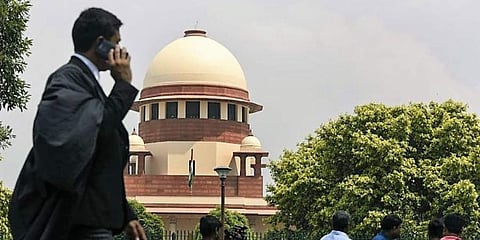

In 24 March 2020, Prime Minister Narendra Modi, while addressing the nation, informed us about the Centre’s decision to impose the first-ever nationwide lockdown, initially three weeks long, to prevent the coronavirus from spreading. In the first flush, to be very honest and candid, I was happy that at least for 21 days, I would get total relaxation and time to spend with my family, without realising the final outcome of the same. Thereafter, I realised the difficulties and problems of being almost under house arrest. For a former judge, the issue was much bigger. How to deal with a situation in which none of the parties are physically present before you? Lordships aren’t used to empty courts. And technology hasn’t been our companion or a virtue for decades. However, it was evident that I would have to adopt it for my own survival.
So I chose to behave like a tech-savvy judicial officer. My home was wired with various machines and my laptop was filled with numerous apps and I acquired the role of a virtual and global arbitrator. I started Zoom hearings of disputes involving multinationals, domestic corporates and even sports bodies. Zoom became the meeting room and Skype acquired the role of connecting the various parties. I could decide cases with parties operating from Singapore, London, Delhi and Mumbai. Unlike the actual courtroom hearing where cases are heard amidst the cacophony of voices of advocates representing various parties, I could continue to hear every case for six hours and pass the order on the same day.
Now came the real hurdle. When I informed various parties about video conferencing, most of them were wary. Some pleaded absence of experience of arguing in wall-less courtrooms. Others didn’t know how to argue without documents and other logistical support like personal assistants. I was surprised why most of the senior counsels couldn’t take the help of their younger colleagues, who were seen in the courts assisting them with all the gadgets at their command. But I was more surprised when an IT professional-turned-advocate informed me that he wouldn’t argue the case through video conferencing. Why? His justification was that he had to read the body language of the arbitrators. However, I had made up my mind. With the help of my researchers, I was able to locate a software that was compliant with the guidelines issued by credible dispute resolution institutions like the ICC and LCIA and STAC.
The entire world is evolving to live differently during the post Covid-19 era. Judicial proceedings can’t remain a slave to old habits and luxuries. The increasing role of technology and artificial intelligence are driving reforms. So there is a need to unlearn certain archaic dogmas. This may also entail a complete overhaul of the way we conduct proceedings. So we must encourage lawyers representing the parties and other stakeholders to push IT companies to build more customised and innovative platforms for conduct of arbitrations. For instance, artificial intelligence has already made great inroads and many international law firms are making use of it to reduce work hours and of course to make document management in voluminous arbitrations more effective. I think the need of the hour is to make it more cost effective, so that it becomes conducive for the Indian parties to adopt new techniques. Arbitration is going to be a huge issue after the Covid impact is visible on corporates.
I suggest: 1) Moving towards institutionalisation of arbitration: This has many benefits. To start with, the need for advance on costs and expenses of the tribunal can be taken care of by the institution, thereby saving previous time and effort for the arbitrators. Most importantly, institution administered ad hoc arbitrations will enable the tribunal to effectively manage the logistics such as conduct of hearing facilities, taking of evidence, web-based platforms and resources available with the institutions. 2) Formalising the role of tribunal secretaries: Internationally, tribunal secretaries, who are often very well qualified lawyers with a passion for arbitration, provide a helping hand to the arbitrators, performing some defined functions, which may be academic, administrative or purely ministerial in nature. They bring efficiency in the arbitration proceedings by giving effective assistance to arbitrators. They should be allowed to argue before the tribunals along with the advocates.
Indian courts are hardly known for keeping social distancing. Settling numerous arbitration cases would need technologically enforced social distancing. It will also speed up dispute resolution as most of us would be working out of homes and offices with a time defined by technology. It is a win-win situation for all. Clients and litigants will save money on travel and office space, retired judges will learn technology, and the coronavirus will meet its Waterloo.
Justice Deepak Verma
Former Judge, Supreme Court of India